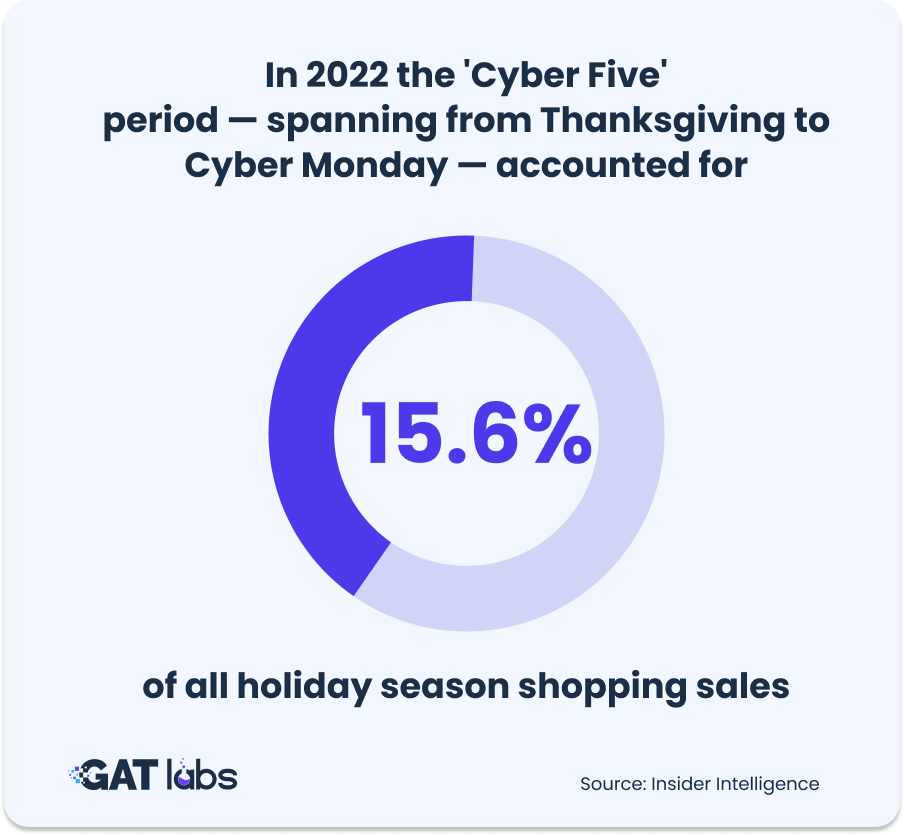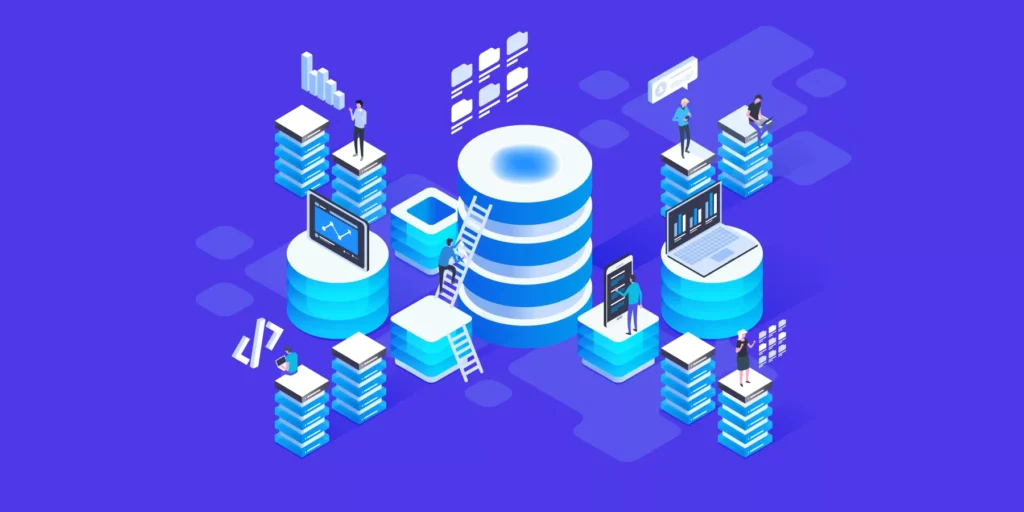As enterprises prepare for Black Friday, they’re not only anticipating a surge in sales but also bracing for a parallel escalation in cybersecurity threats. The previous year’s online shopping bonanza drew in 87 million Americans during Black Friday, showcasing the day’s vast commercial appeal.
A recent study indicates that U.S. online sales for the holiday season are on track to reach an astonishing $221.8 billion, with Cyber Monday sales expected to set new records by topping $12 billion.

In this critical shopping window, understanding and fortifying against Black Friday cybersecurity risks is essential for any enterprise.
The Rise of Cyber Threats During Black Friday
The Black Friday weekend, including Cyber Monday with its $11.3 billion in sales in 2022, presents a ripe environment for cyber criminals. Phishing scams, fraudulent websites, and unprotected transactions are prominent cybersecurity risks.
Businesses need to be vigilant, as the high traffic during Black Friday provides hackers with cover to infiltrate networks and execute attacks. For instance, distributed denial-of-service (DDoS) attacks can overwhelm servers, leading to significant downtime.
Additionally, attackers might exploit vulnerabilities in e-commerce platforms to steal sensitive customer data or deploy ransomware, locking critical business systems and demanding payment for release.
Mitigating Email-Based Threats and Phishing Scams
Cybercriminals are drawn to the spending surge during Black Friday, with individual expenditures ranging from $320 to $650.
To counter this, enterprises must enforce advanced Black Friday cybersecurity measures:
- Multi-factor authentication (MFA) to ensure that access to email accounts requires multiple forms of verification.
- Anti-phishing software that can detect and block fraudulent emails before they reach the inbox.
- Spam Filters are regularly updated to adapt to new phishing tactics.
- Email encryption to secure the contents of your communications, making it difficult for intercepted emails to be read by unintended recipients.
- Domain-based Message Authentication, Reporting, and Conformance (DMARC) policies to verify that the emails your organization receives are from legitimate sources and to prevent email spoofing.
Alongside these technologies, nurturing a culture of cybersecurity awareness is crucial:
- Host regular employee training to identify and respond to phishing.
- Establish protocols for reporting suspicious email activity.
- Advise customers to authenticate promotional emails through official channels.
Enhancing Data Security and Privacy
During this period, the responsibility of protecting consumer information intensifies.
Retail businesses should integrate robust cybersecurity protocols into their overall strategies. This includes implementing secure payment processing systems such as those with PCI DSS (Payment Card Industry Data Security Standard) compliance to protect credit card information.
Additionally, employing data encryption methods, like TLS (Transport Layer Security) for online transactions, ensures that customer data remains confidential and secure from interception.
Regularly updating and patching e-commerce platforms also play a crucial role in safeguarding against vulnerabilities that could be exploited by cybercriminals.
Adopting a Proactive Cybersecurity Stance
The “perfect storm” for cybercrime, fueled by extended shopping hours and a surge in online transactions, necessitates a proactive Black Friday cybersecurity approach.
This means not just waiting for threats to emerge, but actively seeking them out and neutralizing them before they can cause harm.
Here’s how enterprises can adopt this stance:
- Continuous Monitoring Tools to spot and analyze network irregularities.
- Real-Time Threat Detection Systems employing AI and machine learning.
- A Security Operations Center (SOC) to oversee an organization’s ongoing security.
- Regular Penetration Testing to find and fix security weaknesses.
- Well-defined Incident Response Plans for swift action upon threat detection.
By integrating these proactive measures, enterprises can establish a formidable barrier against the threats that Black Friday sales may bring. By doing so, they protect their assets, customer data, and ultimately, their reputation.
Continuous Monitoring and Real-Time Response
Proactive monitoring of network activities is key in detecting and responding to threats promptly. Tools that provide live analytics and instant threat detection are vital in maintaining a secure digital environment during Black Friday.
GAT Labs plays a pivotal role in this proactive defense, particularly in the realm of email security. With its advanced monitoring capabilities, GAT Labs enables businesses to detect not only anomalies in email traffic but also specific indicators of phishing attempts. This level of vigilance is essential for preemptively identifying and mitigating risks, especially during high-risk periods like Black Friday.
By leveraging GAT Labs, enterprises can significantly enhance their ability to ward off phishing and other email-based threats.
Conclusion:
Navigating the Black Friday cybersecurity challenges is a multifaceted task that requires meticulous planning, state-of-the-art technology, and a knowledgeable team.
With a focus on cybersecurity, enterprises can ensure a safe and successful Black Friday.
Take action today! Contact us for a personalized demo and let’s make this Black Friday your most secure yet.
Insights That Matter. In Your Inbox.
Join our newsletter for practical tips on managing, securing, and getting the most out of Google Workspace, designed with Admins and IT teams in mind.







